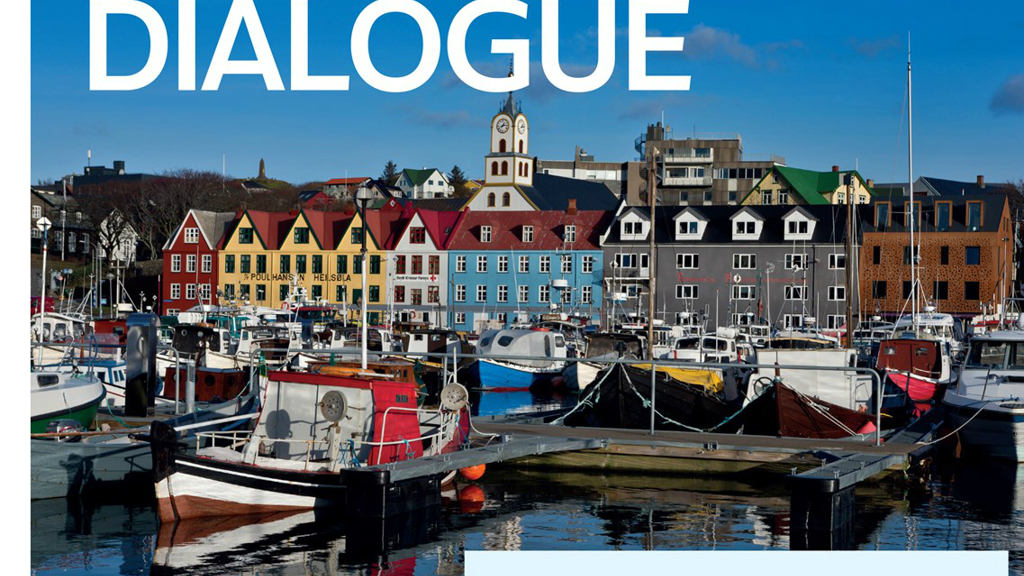
Føroyskir Psykiatriskir Sjúkrahrøktarfrøðingar skipa fyri norðurlendsku ráðstevnuni "Developing Dialogue". Í sambandi við setanina av ráðstevnuni í morgun, bar Kaj Leo Holm Johannesen, landsstýrismaður í heilsumálum, fram røðu.
Les alla røðuna niðanfyri.
---
Dear Ladies and Gentlemen
It is a true pleasure and indeed an honour to join you here today for the Developing Dialogue Congress. A special thanks to the organizers from the Faroese Psychiatric Nurses for hosting this event.
It is a great privilege for me - on behalf of the government - to speak to such a distinguished gathering of people from such a broad range of backgrounds and interests.
And to our guests from Scandinavia, England, Scotland and Canada- A warm welcome to you all.
What does it mean to be mentally ill? In fact, a psychiatric diagnosis is merely a collective name for a group of symptoms related to a certain psychiatric illness or condition. A mentally ill person is not equivalent to his diagnosis; the diagnosis is the illness he is suffering from.
In other words, it is wrong to mention a mentally ill person as a “schizophrenic” or a “border line”. It is our duty as society to acknowledge these people as individuals just like you and me and not as the diagnosis, they are suffering from.
This stigmatization must stop and yes, progress has been made since it is no longer quite the taboo to have a child, spouse or other relatives suffering from a mental illness. But still, it is a long way for mental illnesses to get the same “high status” as for example cancer. In other words, the time has come to set a parallel between somatic and mental illnesses.
With a historical look at the psychiatry treatment, generally the focus was on making the conditions “safe” in many ways for both patients as well as the surrounding society.
When the modern hospital psychiatry blossomed in the 1800-century, the concept of the treatment was isolation and tranquillity/peacefulness in beautiful surroundings.
Patients were not to be disturbed by curious looks or by interaction with other people.
This was a huge progression compared to what it used to be like. For instance, it was believed that people with psychiatric challenges, had been occupied by evil spirits.
They stayed with family on the attic, in poorhouses or in a detention. Mental health issues were to be ignored.
The state took a responsibility, which had been entirely with the family. This was a progress and a small step towards equality between physical and mental illness.
Another step taken with the great advancement of medicine during the 1950´s. This resulted in greater integration with the somatic hospitals.
But indeed, this system had its faults.
The intentions were good – to secure the psychiatric patients from themselves, but it is no secret that the most important purpose was to make the society safe from the psychiatric patients.
That was the reason for building psychiatric hospitals, also on the Faroe Islands. It became a permanent resident for many people.
The setting at the hospitals was safe, the patient received treatment to insure safety for themselves and for the society.
Out of sight – out of mind.
A consequence of the traditional hospital psychiatry was that it institutionalized the patients. In return for the hospital treatment patients were to give up their self-determination and the right to their own life. That was the price of receiving treatment for your illness.
At the same time it is fair to criticise the use of medicine to make the patients apathetic, creating a zombie-effect, patients lost ordinary emotional relationships with everyone they had a connection with.
Thus, it is essential that the treatments did not work, and that the hospitals were filled up with psychiatric patients.
New patients were hospitalized and placed among all the other patients; some of them had been admitted for years.
The consequences for some patients who initially were not seriously ill, became seriously ill by the “treatment” they were given at the psychiatric hospital.
It was safe in terms as closed doors and grids but it was certainly not a dignified life for the individuals.
A trend prompts a counter-trend and change is needed. The truth yesterday is not always the truth to day and the same applies to health science and care. Paradigm changes.
The building of the brand new and modern part of the National Hospital- the so-called H-building- has included the psychiatric ward in combination with other somatic wards. This is a new way of thinking and patients admitted to a psychiatric ward will use the same entrance to the hospital as everyone else.
This is in great contrast to the current psychiatric ward, which is situated with a certain distance from the main enterance of the National Hospital.
Psychiatric illness is not a chronical illness and it is possible to live a good life with psychiatric challenges. However, studies indicate that the chances of recovery are increasingly higher with a proper and effective treatment.
Therefore, it is of outmost importance that the health care system is able to provide suitable treatment within a few weeks.
As the minister of health I can assure that I will do my very best to implement a guarantee for patients to receive treatment within thirty days. It is my firm belief that a treatment guarantee will be of significant help to patients facing a mental illness- or any other kind of illness- with a fast and proper medical treatment.
This will be a win- win situation for all concerned parties.
In addition, it is worth mentioning that a group of experts have made a “Plan for mental health” with several interesting recommendations. One recommendation worth mentioning, is the free psychological consultations for persons aged 15-35 suffering from mental illnesses such as depressions or anxiety. Hopefully, this recommendation can be initiated in the near future.
With these few words, I wish you all a good conference.
Thank you
